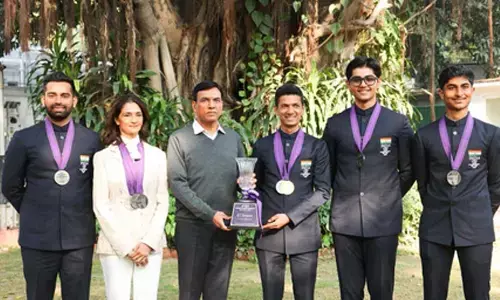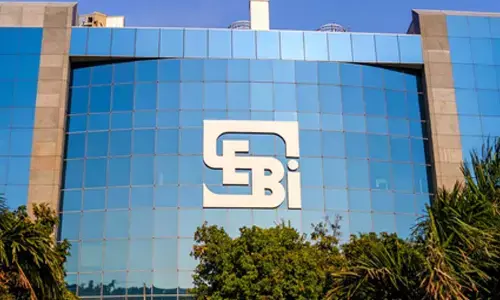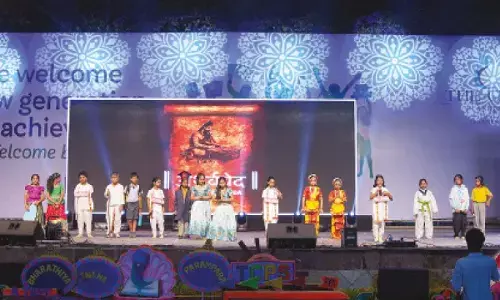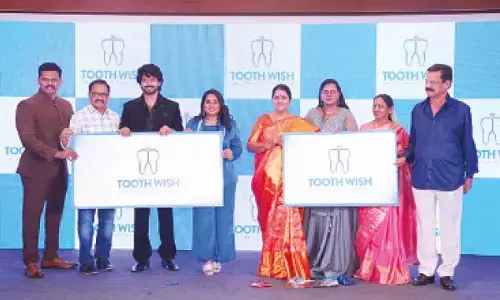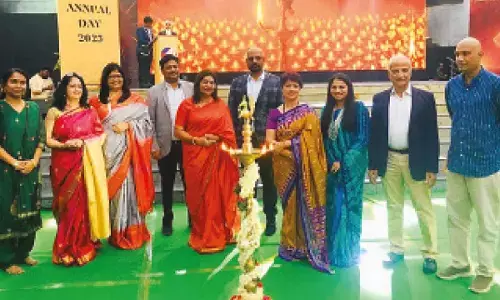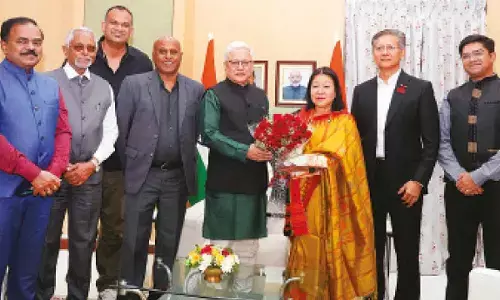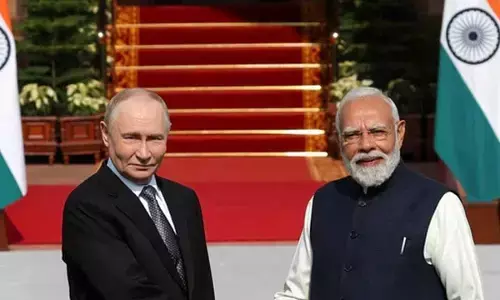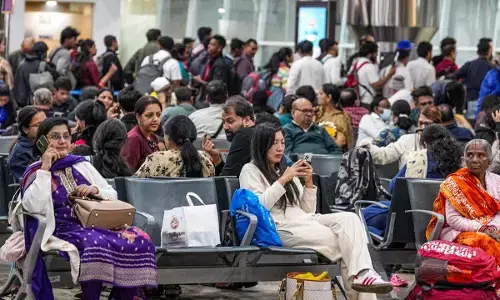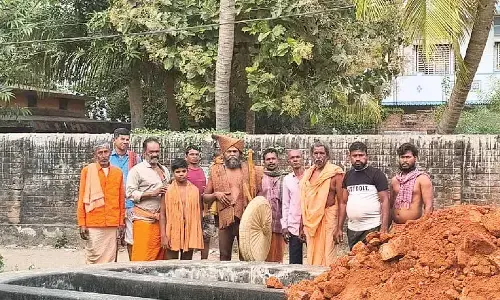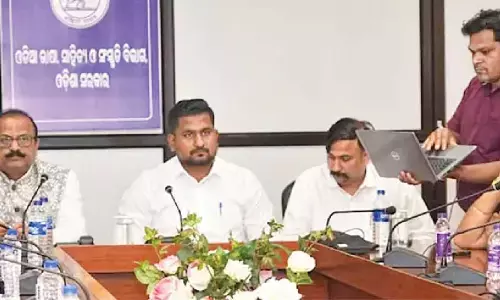Lotus blooms in Karnataka while Congress wilts

The Lok Sabha election has been a god-sent opportunity for a bruised BJP in Karnataka to bounce back a year after it was dumped,
 The Lok Sabha election has been a god-sent opportunity for a bruised BJP in Karnataka to bounce back a year after it was dumped, thanks to a "Modi wave" under which the Congress wilted during peak summer.
The Lok Sabha election has been a god-sent opportunity for a bruised BJP in Karnataka to bounce back a year after it was dumped, thanks to a "Modi wave" under which the Congress wilted during peak summer.
Winning 17 of the 28 parliamentary seats in the state Friday, the Bharatiya Janata Party (BJP) recorded a hat-trick at the hustings albeit two less than the 19 of 2009 and one less than the 18 in 2004. The ruling Congress won nine seats as against six in 2009, while the Janata Dal-Secular (JD-S) bagged two as against three in 2009.
Polling was held across the state April 17 in a single phase.
It is a record of sorts for a sulking party to retain its stronghold in the southern state after suffering reverses in the 2013 assembly elections, which snapped its first five-year rule in southern India under three chief ministers.
Loss of power due to scams, scandals and sleaze notwithstanding, the party exploited the pent-up anger and frustration of the electorate against the Congress-led UPA government for price rise, corruption and growth of the jobless and reaped dividends, riding on the popularity of its prime ministerial candidate Narendra Modi.
Though the party failed to retain three seats (Chitradurga, Raichur and Tumkur), it wrested four (Bidar, Davanagere, Mysore and Udupi-Chikamaglur) from the Congress, consolidated its hold in its coastal, north and central bastions and held on to Bangalore.
Wooing back its former chief minister B.S. Yeddyurappa into the party fold from the Karnataka Janata Party (KJP), a regional outfit he floated in December 2011, the BJP benefited by the return of the Lingayat community to which he belongs and which accounts for 17 percent of the state's 60-million population.
Similarly, allowing Yeddyurappa to contest from Shimoga and his protege, Shobha Karandlaje, from Udupi, the party ensured that its committed votes were not divided as in the assembly elections, which reduced its strength to 40 from 118 lawmakers in the 225-member house.
At least six flying visits by Modi to campaign and address rallies across the state during electioneering and anti-incumbency against the UPA government had a telling effect on the people, especially youth and first-time voters, who were looking for a decisive change and a strong leader to provide a stable government.
Interestingly, though Modi could not campaign at Shimoga, about 280 km from Bangalore, Yeddyurappa won the seat with the highest margin (363,305 votes) in the state, and allowed the party to retain the seat held by his younger son and outgoing lawmaker B.Y. Raghavendra. And Shobha is the only woman candidate to win out of 21 who contested, including two from the Congress and one from the JD-S.
In contrast, a defensive Congress smugly assumed that its social and welfare schemes like 1 kg rice at Re.1 (Anna Bhagya) to poor families, free glass of milk (Ksheera Baghya) to all children in state-run schools and a loan waiver for farmers, weaker sections, Dalits and minorities will fetch chunks of votes for its candidates, many of whom contested again from the same constituencies.
As bonhomie with the people continued even 11 months after returning to power, Chief Minister Siddaramaiah and state unit president G. Parameshwara hoped the people would again reward their party for the promises it made before the assembly elections and many more in the manifesto for the general elections.
The ruling party's attempt to woo "digital voters" of Bangalore, including techies by fielding Infosys co-founder and technocrat Nandan Nilekani from the prestigious Bangalore South backfired, as his BJP rival Ananth Kumar won for a record sixth consecutive time with a whopping margin of 228,575 votes.
As technocrat Nilekani was the choice of Congress vice president Rahul Gandhi, state leaders, including four legislators from the four assembly segments in the parliamentary constituency, pulled all stops to ensure his victory and please the scion. Being a political greenhorn, Nilekani was no match to a seasoned politician like Ananth Kumar.
Similarly, fielding a Young Turk like Rizwan Arshad from Bangalore Central, overlooking the claims of veteran leader and former union minister C.K. Jaffer Sharief, ostensibly at the behest of Gandhi, proved costly for the party, as the BJP's incumbent MP, P.C. Mohan, retained the seat by a margin of 137,500 votes.
While outgoing union ministers Mallikarjun Kharge, M. Veerappa Moily and K.H. Muniyappa of the Congress retained their respective seats - Gulbarga, Chikkballapur and Kolar - former Chief Minister N. Dharam Singh failed to retain Bidar in the northern region of the state.
Next Story








